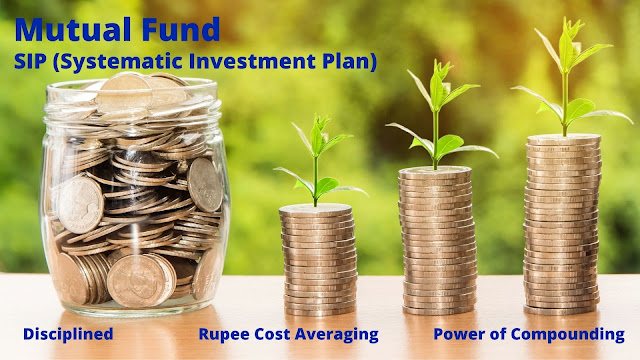How Mutual Fund SIP magic works for investor
Everyone wants to grow their wealth & achieve financial freedom but not everyone follows good financial habits. Many people start their investment in a mutual fund but consistency matters. Many investors make selloffs or stop (SIPs) investments which reduce their total compounded corpus at the end.
SIP (Systematic Investment Plans) means investing a sum of money regularly, generally at a frequency of once a month. Since the investment happens no matter the NAV or market level at which point. Investors automatically buy more units when the markets are low & fewer units while the market is at high. This rupee cost averaging leads to a lower average price, which translates to higher returns.
Once you want to sell your investment, all the units you own are well worth the same. However, your margin of profit is higher for units that were bought at a lower cost. Effectively, you've got paid a lower average price, which translates to higher returns. SIPs automatically enforce the investor’s goal of ‘Buy Low, Sell High. SIPs are the only way of investing regularly and getting good returns from equity, without having to stress about when to take a position and when to not invest and thus often missing out on the simplest opportunities. SIP is a more disciplined way of investment.
Today, many of us want to retire young, and that they might not necessarily want to wait till the age of 60. If you're one among those, then it becomes important to have SMART financial Goals. You need to put some money every month honestly to satisfy your investment and achieve financial freedom. You need to avoid common investment mistakes such as investing without the study or advice of a financial advisor, investing without proper financial planning, etc.
Simple Rs. 10000 monthly SIP can build the amount of 1 Cr in 20 years with an average 12% rate of return. Creating your first crore sounds good and is extremely much achievable, provided you begin early because it'll not happen instantly. We need to keep in mind the impact of inflation on post-retirement expenses & our different financial goals while investing.
Achieving the target corpus of your financial goals depends on the amount you invest and the financial products you invest in. Importantly it is also dependent on how the investment is diversified in different asset classes. The return on your investment is unlikely to exceed 7% (average inflation rate) if you invest in debt or fixed return products like FDs, Public Provident Fund (PPF), Bonds so you need to invest in financial instruments which will have the potential to beat inflation such as Mutual funds, Stocks, etc.
You will not be able to invest in real estate via monthly mode & investing in physical gold will not always be feasible for everyone. The simplest option that you simply have is equity investment via the open-end mutual fund route. If you begin investing in an open-end fund Systematic Investment Plan (SIP) you will get a return of an average of 12%. If you'll increase your annual SIP amount by stepping it up by 10% per annum. If you check out the history of stock exchange returns, Sensex has actually given quite good around 16% returns over the last 39 years since its inception in 1979 till now.
The longer you invest via SIPs, the higher are going to be the returns you get. A monthly SIP of Rs 10,000 with an assumed return of 12% invested for 5, 10, 15 and 20 years will end in a corpus of Rs 8.25 lakh, Rs 23.25 lakh, Rs 50.50 lakh, and Rs 1 crore respectively. If you check out the pattern, you'll find that every increase of 5 years drastically increases the returns on your investment. There's no magic, it is called the power of compounding.
SIP (Systematic Investment Plans) assist you to develop the habit of normal saving & investing without having to dedicate an excessive amount of time in following up and making manual payments. Start investing through a SIP today only.
Remember, time is money!




Post a Comment